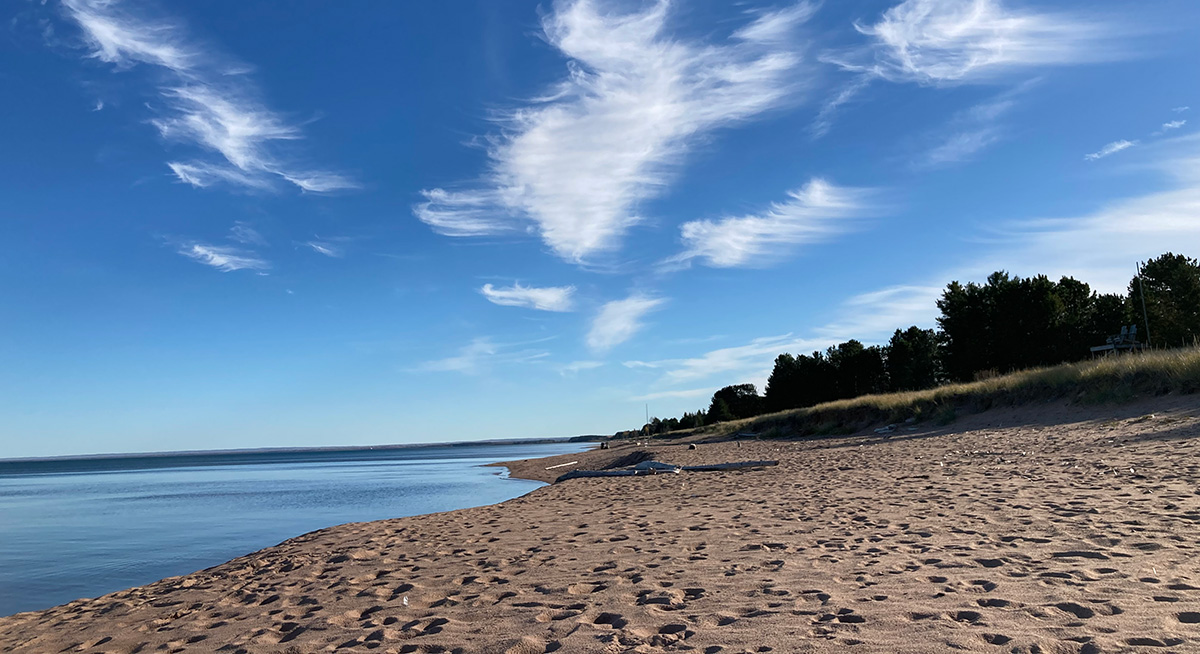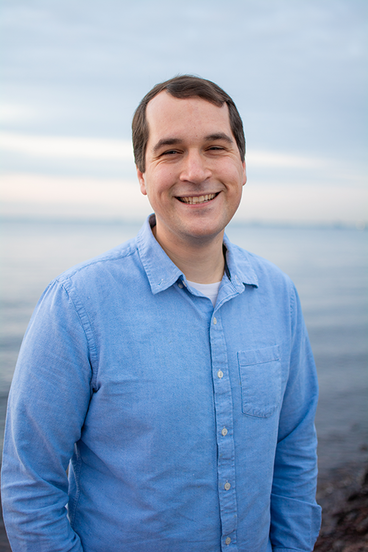
Image credit: Marie Thoms/Minnesota Sea Grant.
The NOAA Coastal Management Fellowship was established in 1996 to provide on-the-job education and training opportunities in coastal resource management and policy for postgraduate students and to provide project assistance to state coastal zone management programs. Each year, fellows are placed with state coastal programs to work on projects proposed by those programs and selected by NOAA. This two-year opportunity offers a competitive salary, medical benefits, and travel and relocation expense reimbursement.
Placement for the Coastal Management Fellowship positions is fully integrated into the placement process with the Digital Coast Fellowship positions. Candidates apply to NOAA's Coastal Management and NOAA's Digital Coast Fellowship program as a whole, and selected candidates will be eligible to interview with both the state coastal programs and NOAA's Digital Coast partnership organizations at the fellowship matching workshop.
+
What is the NOAA Coastal Management Fellowship?
The NOAA Coastal Management Fellowship was established in 1996 to provide on-the-job education and training opportunities in coastal resource management and policy for postgraduate students and to provide project assistance to state coastal zone management programs. Fellows are placed with state coastal programs every year. The program matches postgraduate students to work on projects proposed by state coastal zone management programs and selected by NOAA. This two-year opportunity offers a competitive salary, medical benefits, and travel and relocation expense reimbursement.
Additional information:
+
Who is eligible?
Any U.S. citizen who will complete a master’s or other advanced degree at an accredited U.S. university between August 1, 2022, and July 31, 2024, is eligible to apply for the Coastal Management and Digital Coast Fellowships. Students from a broad range of programs are encouraged to apply. A variety of degrees are applicable to the fellowship because the projects are new and different each year.
To read about the 2024 projects, visit Coastal Management Fellowship projects and Digital Coast Fellowship projects. Previous fellows have had degrees in environmental studies, natural resource management, marine affairs, marine science, geology, public affairs, communications, social sciences, and regional land management. The most important prerequisite is an interest in coastal issues. Students who are not U.S. citizens or who attend non-U.S. institutions are not eligible.
All applications must include the following items:
- Resume or curriculum vitae (not to exceed two pages using 12 point font).
- Statement of the applicant’s goals with emphasis on what the applicant expects from and can contribute to the fellowship experience. This should also include how the fellowship can help reach goals that may be difficult to reach without the fellowship opportunity. Include any obstacles that have been overcome to reach this point in your academic career (500 words or less).
- Two letters of recommendation, including one from the applicant’s principal professor. If no principal professor exists, the faculty member who is most familiar with the applicant’s academic work may be substituted.
- Unofficial copies of all undergraduate and graduate student transcripts.
Any additional materials submitted will not be considered in the selection process. If you are selected as a finalist, an additional writing sample will be requested.
+
How do you apply?
Application packages must be submitted to the Sea Grant program office in the state where you earned your degree by January 26, 2024. Each Sea Grant program office may select and forward up to four applications to NOAA for review. In order to increase diversity in the fellowship, Sea Grant may submit one additional application from a candidate who attended a minority serving institution, for a total of five. The fifth nomination spot is reserved solely for minority serving institution candidates.
Applicants from states not served by a Sea Grant program office should contact the fellowship coordinator for more information on submitting an application.
Minnesota based applicants should apply via eSeaGrant. Questions? Contact Minnesota Sea Grant Research and Fellowship Coordinator, Alex Frie.
+
What happens if you are selected?
From the nominations submitted by Sea Grant directors, 18 finalists will be selected by a panel. Final decisions will be made by March 22, 2024, and all applicants will be notified of the decision by the end of the following week.
+
Placement of Fellows
The Coastal Management and Digital Coast Fellowship matching process will take place in two parts in late April 2024. First, program orientation by NOAA, project presentations by the hosts, and presentations by the finalists will be conducted virtually the week before the in-person portion of the matching workshop. Sessions will be live but will also be recorded for those that may miss a session.
The following week, in-person interviews will take place in Charleston, South Carolina. The finalists will be brought to the in-person portion at the expense of NOAA. Before the workshop begins, each of the 18 finalists will be able to review the fellowship projects on the fellowship website. Each of the selected host organizations will send the fellow mentor to the placement workshop. No contact between prospective hosts and finalists should be made prior to the placement workshop. Candidates and hosts will submit their top choices of placement to NOAA, and NOAA will match fellows with hosts.
Of the 18 finalists selected in 2024, up to seven will be placed with a state coastal program and up to three will be placed with a Digital Coast partner. If a host does not find a suitable candidate during the matching process, it will be given the option to defer fellow placement for one year. Hosts will only be allowed one deferment before they have to reapply.
Additional information:
- 2024-2026 Coastal Management Fellowship Projects
- 2024-2026 Digital Coast Projects
- Contact NOAA Office for Coastal Management Fellowship Coordinator at ocm.fellowships@noaa.gov
+
Why Minnesota Sea Grant?
Minnesota Sea Grant is part of the National Sea Grant Office, which is under the National Oceanic and Atmospheric Administration (NOAA). MNSG supports NOAA fellowships for undergraduates, graduate students, and post-graduate students because they directly support Sea Grant's mission to enhance the practical use and conservation of coastal, marine and Great Lakes resources in order to create a sustainable economy and environment. The NOAA Coastal Management Fellowship program also supports the National and Minnesota Sea Grant workforce development focus area.
+
Contact
Want more information? Submit this Minnesota Sea Grant form.
Questions? Contact Alex Frie, Minnesota Sea Grant research and fellowship coordinator.
